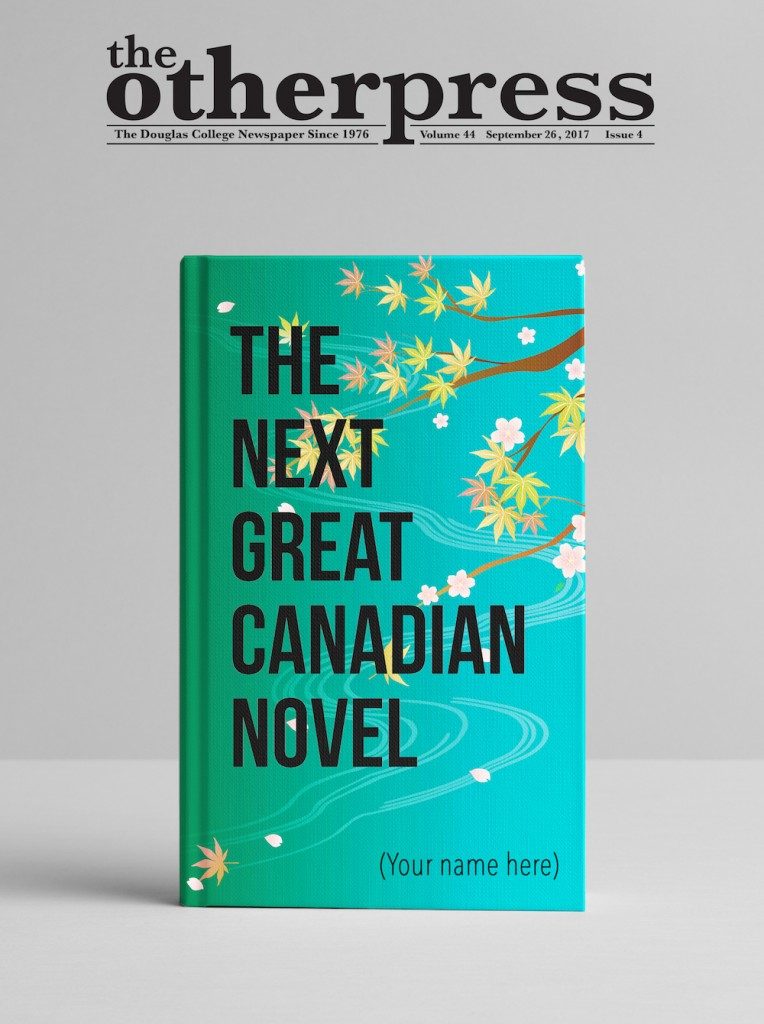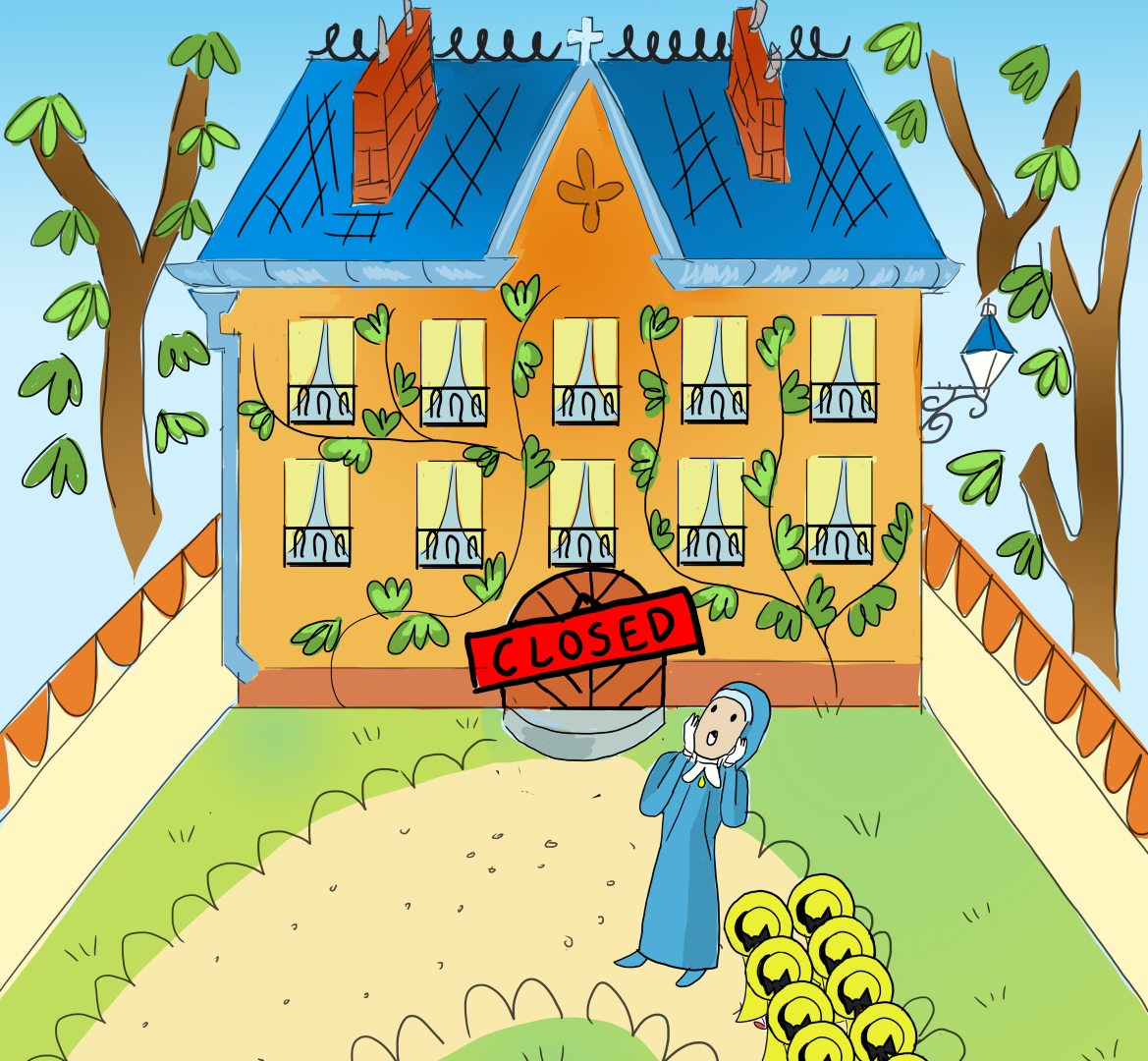
The trials and tribulations of extensive creative projects
By Brittney MacDonald, Life & Style Editor
My name is Brittney, and I am a writer—that has always been something I have found difficult to say. Not because it isn’t true, I have been a journalist and editor for a number of years; I have been published in short story anthologies, textbooks, collective books of poetry, and I even wrote a novella a few years back. Currently I am attempting to work on my second book, a full-length novel. However, it has only been in the last two years that I have been able to introduce myself as a writer and not chicken out at the last second, resorting to my default of encasing myself beneath the umbrella term of “retail slave.” I suppose it is one of those things where once you say it out loud, you become accountable for it. Like if I describe myself as a writer, but then never produce another notable work, all of a sudden everyone will see me as a failure—or worse, one of those basement dwelling “writers,” who’s greatest work to date is their homoerotic Supernatural/Lord of the Rings crossover fanfiction. As a sci-fi writer, I feel like I rank slightly above that—but only slightly.
I have grown up as something of an introvert, and I tend to shy away from the possibility of failure because I fear disappointing the people that support me in any way. This hindered my growth as a writer greatly. For a number of years, I was too scared to commit to writing anything. In fact, it wasn’t until the abject failure that was my first book that I finally felt able to fully explore what I think makes my writing unique.
Failure isn’t a bad thing
On the surface, my first book looks like a moderate success. I wrote it, it was published, that should be enough. That is if you ignore the fact that I hate my first book beyond any measure—so much so that I never repeat the title in polite company. I made a number of mistakes that I regret, peak among them is my choice not to write in a genre I enjoyed. I was too afraid to tackle the world of sci-fi, intimidated by the idea of having to world-build so much.
Typically, science fiction is not as character-focused as most popular genres. Its appeal lies in the construction of the narrative universe: Is it believable, does the technology make sense? Despite my love of sci-fi, I always knew that my style of writing was more character-driven, so for my first book I made the choice to relegate myself to historical fiction. This was a mistake as it made writing it a chore, so I rushed through it. The end result is something that I am not proud of, and the fact that it went all the way through to being a published work is something of an embarrassment.
I know that it is awful, and in no way reflective of what I am capable of. But, in the end, I gained experience from all of this. I now know that I need to write to please myself, because if I like it, there’s bound to be someone else out there who will too. The fact I was able to fail, and then come back from it still wanting to write is a testament to how insignificant failure is. In the end, I wasted so much time being afraid of failure, only to find out that failure means very little.
Be brave, but be smart
Nerves get the best of everyone. Even now, with my newfound confidence in being a failure, I am nervous. As a writer about to begin a new project you are essentially at the mouth of a very long and dark tunnel that you have to go into alone. No matter how much support you have around you, you are the only person that can ensure you make it out the other side.
I asked someone I greatly admire, New York Times bestselling author Nalini Singh, if she was ever nervous or scared when she first decided to make the move to publish, and she gave me some of the best advice I have ever received:
“I’m not sure everyone should [publish] the first book they write. You grow so much as a writer from book to book. Not to say there haven’t been great first-ever books, but I think that’s rare. I always suggest people at least give themselves a month or two of distance and then go back and read/review that first book to see if they want to publish it. My first published book was probably my 10th written. I knew that book was ready. I’m not saying write ten books before publishing, but do give yourself room and distance to clearly assess your work. I think that helps with nerves, but all writers I know (myself included) always experience nerves when a new book goes out into the world, because it is a new project and no one can predict if readers will like it or not. Write your best story. That’s what you can control.”
Move with your inspiration
I think another one of my earlier mistakes was to write in a way that was linear, and without the forethought that I could re-write or edit it later. This is something that has made the process of writing my second book a lot more enjoyable.
Instead of writing a full story from beginning to end, I break it up depending on what I find inspiring that day. Do I want to write an epic battle scene, or do I want to write a small, dramatic moment? I can do either, and that freedom greatly affects the quality of my writing. It also ensures that I’m not rushing through to simply get to a part I want to write about. Essentially, I have subscribed to the mantra: “Write now, edit later.”
Having a way of just getting the ideas out, even in a simple point form way, means you won’t forget about the good ideas you have. Right now, I have a notebook that I write drafts of scenes and notes in. I then take the drafts from that notebook and then type them up into the novel’s master copy in my computer when I feel they fit in the timeline. Sometimes I have an idea of where the scenes should go, other times I simply write something for the sake of getting the ideas out. Doing so keeps my motivation to write at the forefront of my mind—so it makes it less likely that I’ll fall into a funk or the dreaded writer’s block. I simply look at this process as the first initial step in reading and reviewing my work as Singh suggested I do, and so far I have been very happy with the results.
Stay focused
Ultimately, I am still unsure how this book will turn out; if it will ever see the light of day, or if I will eventually scrap it. That being said, it doesn’t feel like a throw-away—it feels like something special. I say this because the original introduction into the world I am writing was done through a short story I wrote several years ago for a creative writing workshop at Douglas College. Despite the fact it was so long ago, the story has stuck in my mind—a nagging insect that just wants my attention. Because of that strange, innate feeling, I want this to work, even if I do suffer the occasional bouts of self-doubt. I think that everything that has led me to this point—my failure, my intuition, my decision to be confident and do my own thing even though I am afraid of what that could entail—has led me to a very specific place. I want to write, and I want to write this story in particular—and because I know that, focus is less of a problem.
I think writers in general are a special breed. I have never met one that didn’t want to write, unless they were forced onto a project they didn’t believe in. Is it work? Yes. Will you have endless late nights and frustrations? Yes. But the writing isn’t the issue for me—it’s everything else. Having to work that 9 to 5, having to make time for my loved ones. As awful as it sounds, I would rather hole myself away and get this story out, but that’s impossible. I suppose then that my best advice for staying focused is to not go with fleeting trends and half-baked concepts. Wait for the story that won’t leave you alone.



